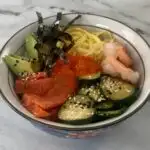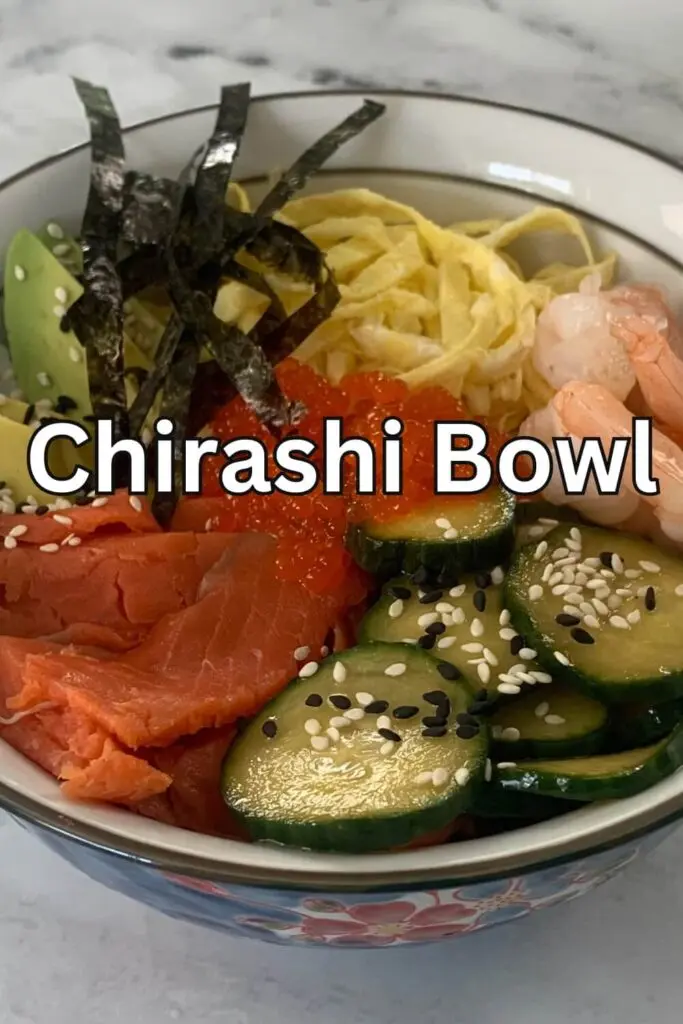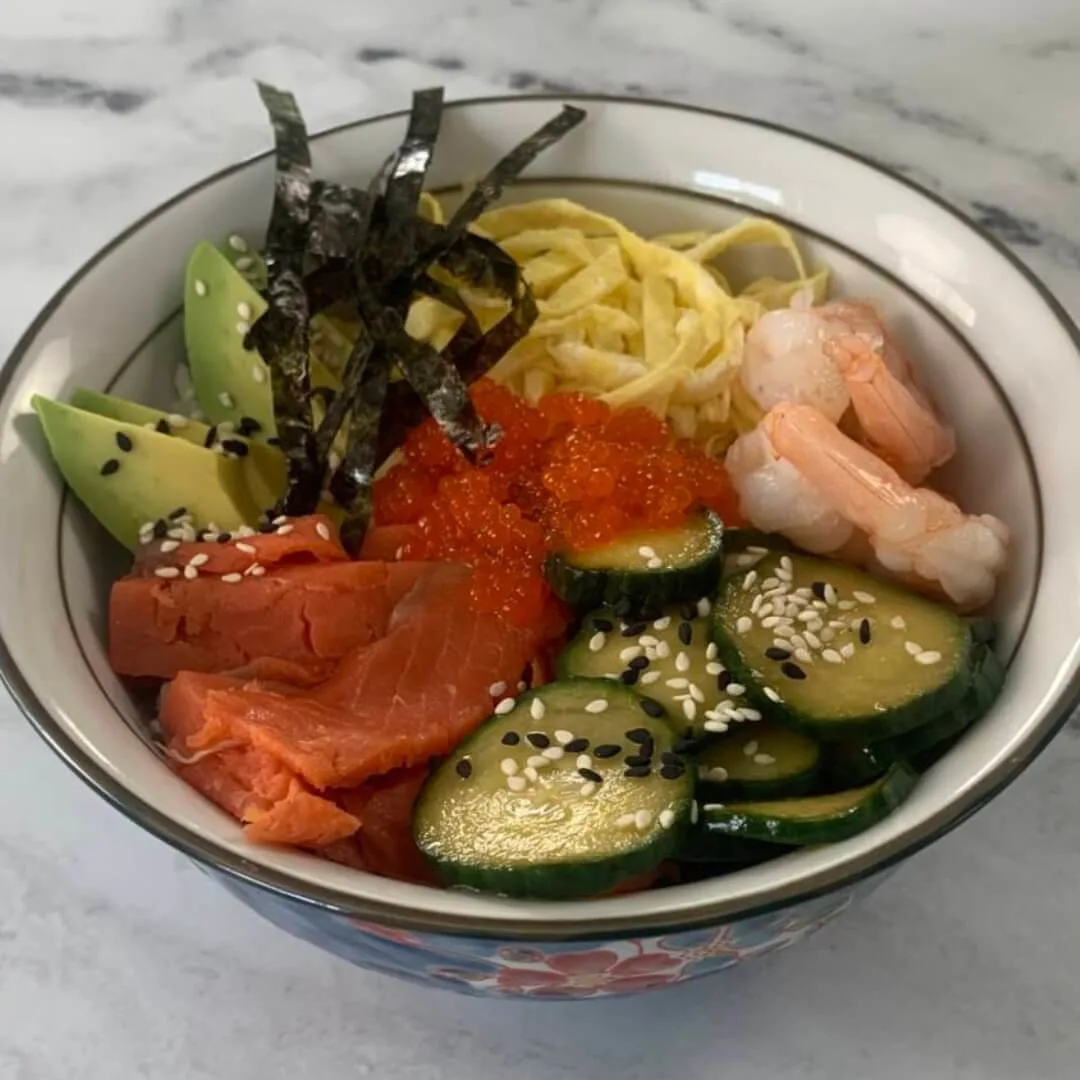Chirashi bowls are a colorful assortment of seafood, vegetables and sushi rice that has been a part of Japanese cuisine for centuries and continues to be popular throughout Japan today. The thing I love about chirashi bowls is that you can make it your own based on your own unique taste.
In this article, we will take you through how to make this visually stunning and delicious dish step-by-step.
Table of Contents
What is a Chirashi Bowl?
A chirashi bowl, also known as chirashizushi, is a bowl of sushi rice topped with assorted seafood, vegetables and other toppings. The seafood used in chirashi bowls is often sashimi grade and uncooked. While chirashi looks nothing like the rolls most Westerners associate with “sushi”, this colorful bowl is considered sushi as it contains sushi rice and fish (often many varieties).
Chirashi is a versatile dish whose ingredients and quantities vary widely depending on the chef preparing the food and the occasion for which the chirashi bowl is served. I have seen $200 chirashi bowls served at high end sushi restaurants and much less expensive chirashi bowls on lunch menus at more casual Japanese restaurants. Chirashi bowls can also be served in smaller portions as a part of a multi-course meal. In Japan, chirashi bowls also vary by region and season.
What’s the Difference Between Chirashi and Poke?

Many ask if chirashi is another name for poke. While the two dishes are similar in that they often both contain raw fish served over a bed of rice, there are some key differences between the two.
Poke bowls originated in Hawaii where chirashi bowls originated in Japan. The fish used in poke bowls often differ from those used in chirashi bowls as the types of fish commonly available in Hawaii differs from that in Japan. Also, poke bowls almost always contain marinated fish that pack a different flavor punch than the delicate sashimi flavors often found in chirashi bowls.
Another difference between chirashi bowls and poke bowls is the type of rice used. Sushi rice (rice that is mixed with sushi vinegar) makes a chirashi bowl a sushi and defines the flavor. Poke uses plain rice that does not have the same vinegar flavor and thus changes the flavor profile dramatically from chirashi.
The presentation of chirashi bowls is often more complex and artistic than the more simple presentation of poke bowls. Poke bowls usually consist of cubed fish served on a bowl of rice where chirashi bowls tend to use sliced fish arranged with other toppings.
How do you Make a Chirashi Bowl?
While most chirashi bowls contain sashimi-grade raw fish, I prefer to use smoked salmon and cooked shrimp as my two main seafood components. The only uncooked seafood in my version of the chirashi bowl is the ikura, or brined salmon eggs. Below are step-by-step instructions on how to prepare a delicious chirashi bowl:
Make Sushi Rice
1. Rinse 2 cups of sushi rice by placing it in a colander and running water through it until the water is clear.
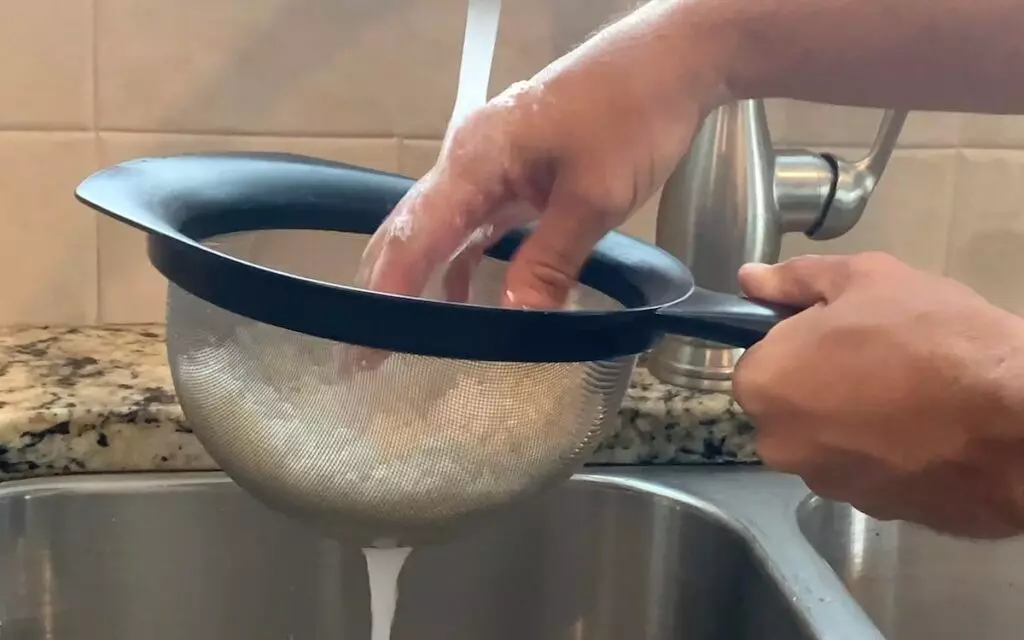
2. After the rice is rinsed, add it to a sauce pan with 2 1/2 cups of water.

3. Bring the water to a boil and then reduce the heat to low. Cover and let the rice simmer until the water is absorbed and the rice is soft. This usually takes around 20 minutes.
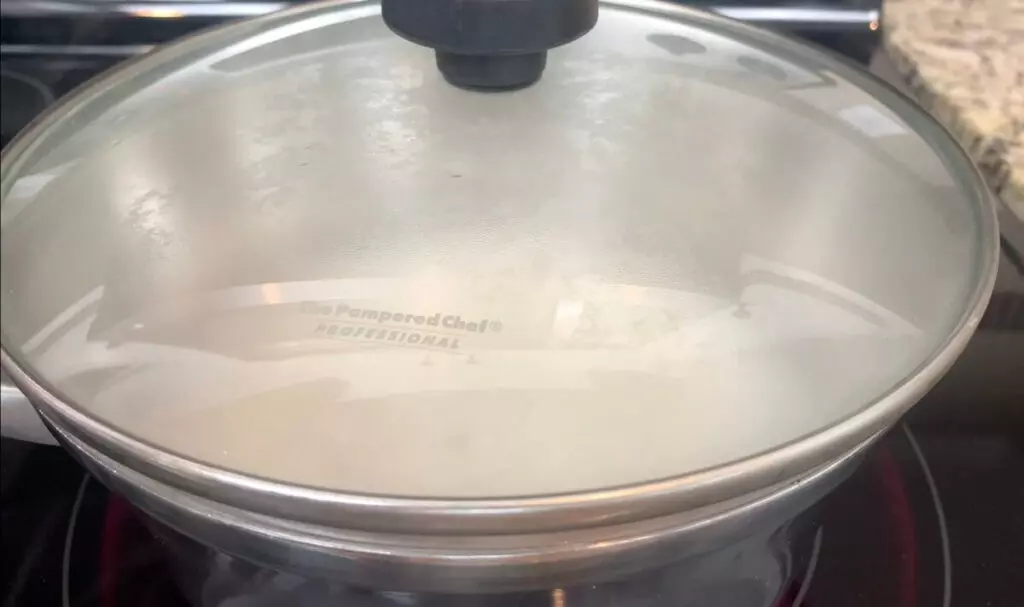
4. Remove the rice from the heat and scoop into a bowl or dish to let cool. I would line the dish with parchment paper prior to adding the rice to avoid sticking.
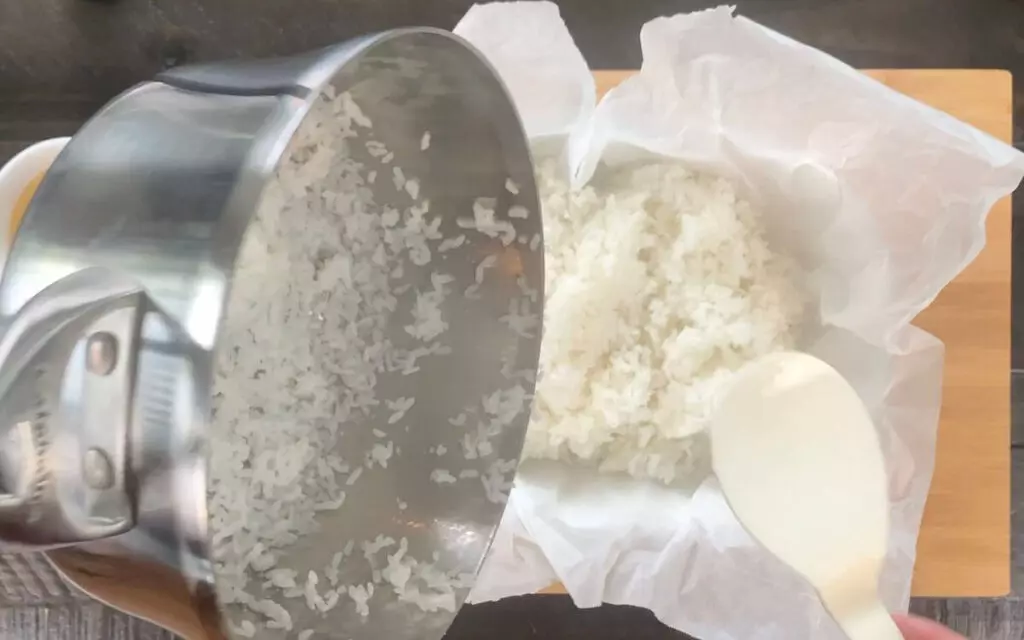
5. Mix 1/4 cup of sushi vinegar into your rice. Stir until it has absorbed into the rice. Once cooled and fully absorbed, your rice is ready!

Make the Cucumber Salad
1. In a medium bowl, mix sugar, rice vinegar, soy sauce and sesame oil until the sugar is dissolved and everything is mixed.
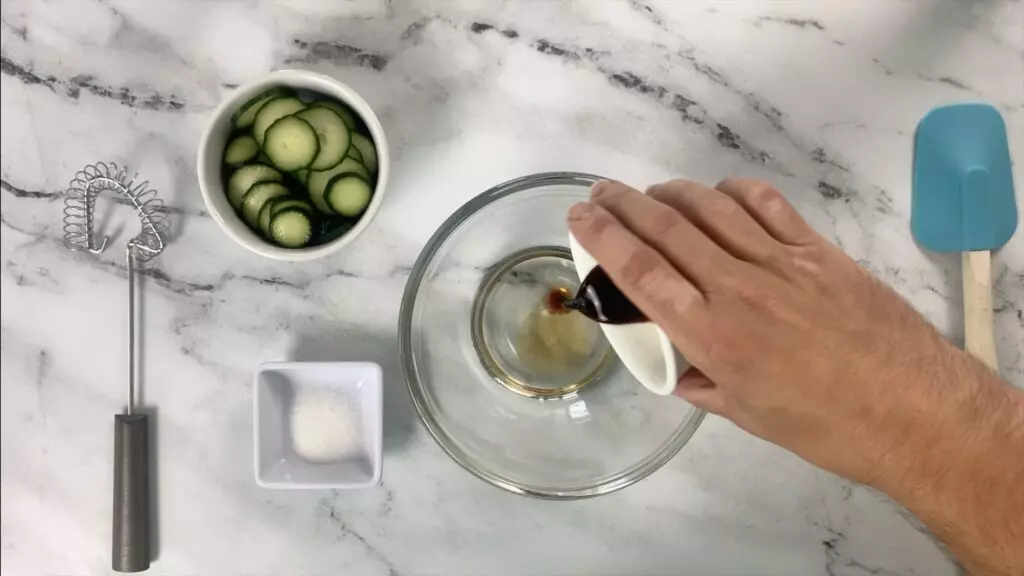
2. Mix sliced cucumbers in the bowl making sure all cucumbers are coated.
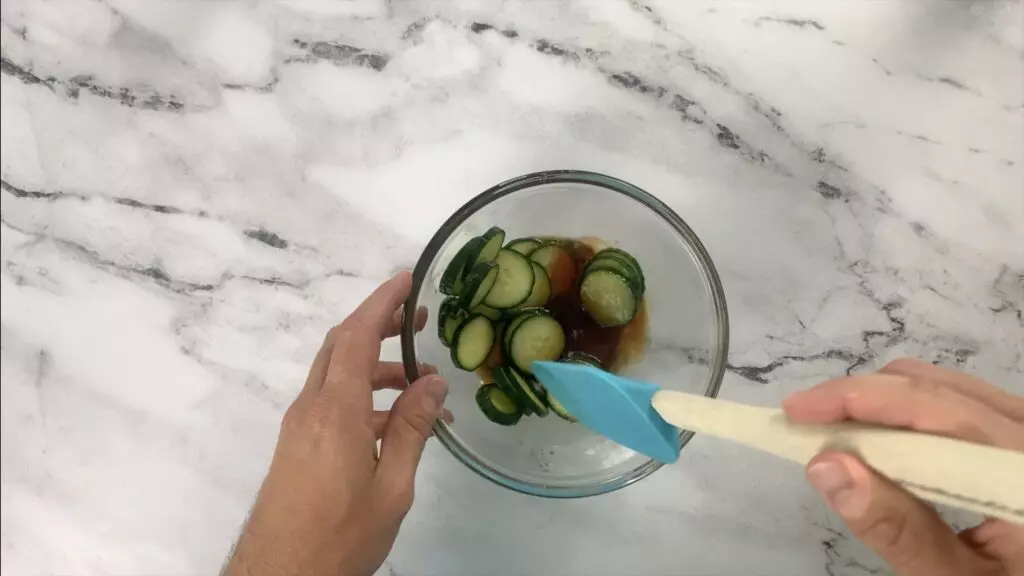
3. Cover and place in fridge until ready to use.
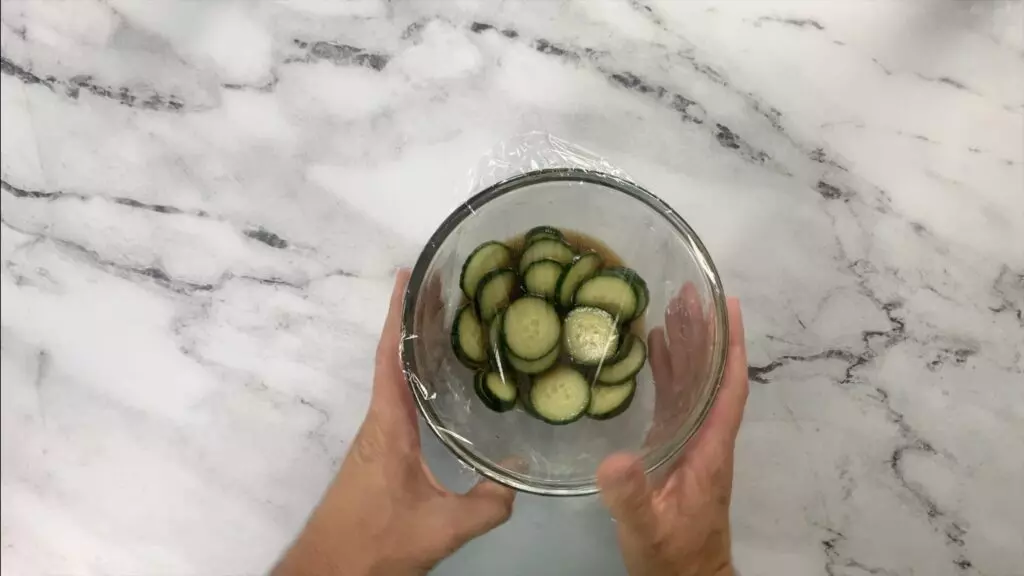
Prepare Kinshi Tamago (shredded egg crepe)
1. Add egg to bowl and whisk until it’s mixed thoroughly.
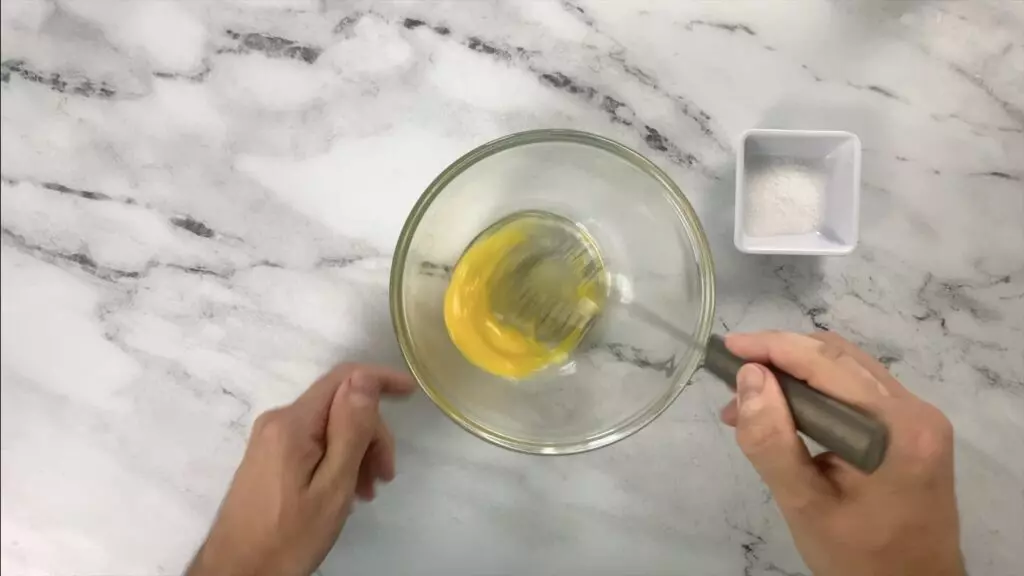
2. Add sugar and salt and mix with egg.
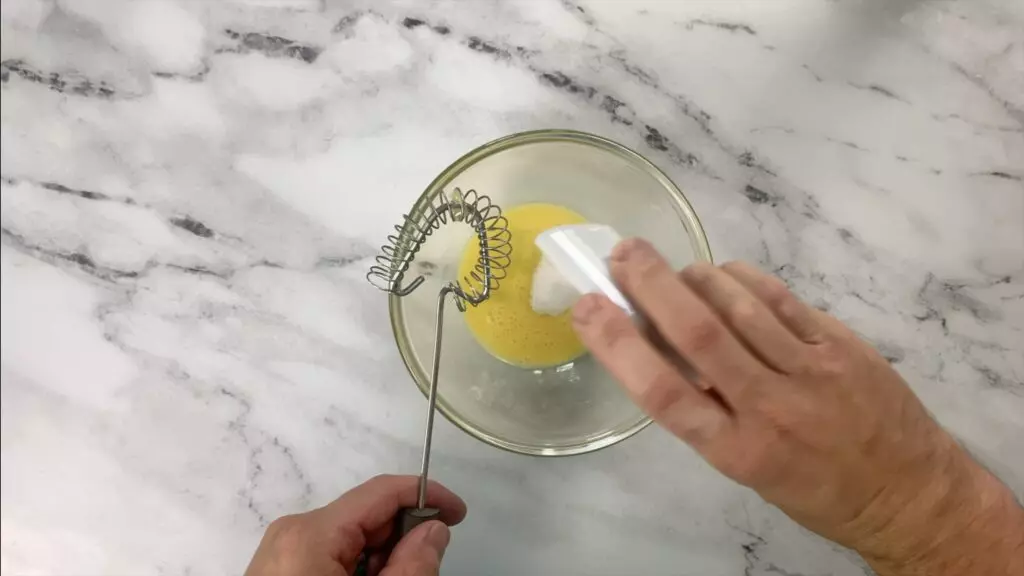
3. Heat a skillet on medium-low heat until pan is hot. Then brush on a thin layer of oil making sure to coat the entire bottom of the pan’s surface.
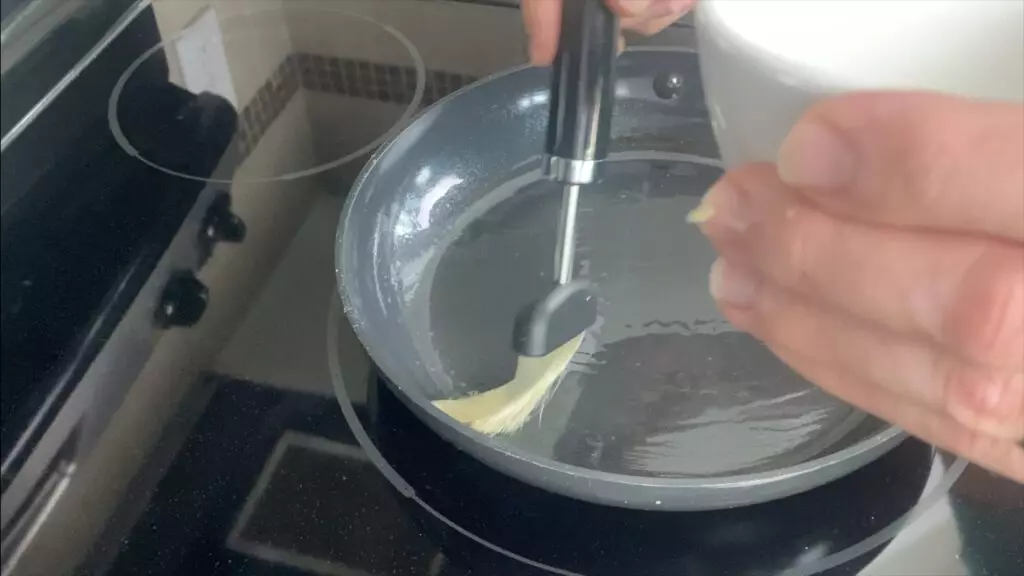
4. Pour egg mixture onto pan and quickly swirl across the bottom of the pan to make sure the egg is spread evenly in a thin layer.
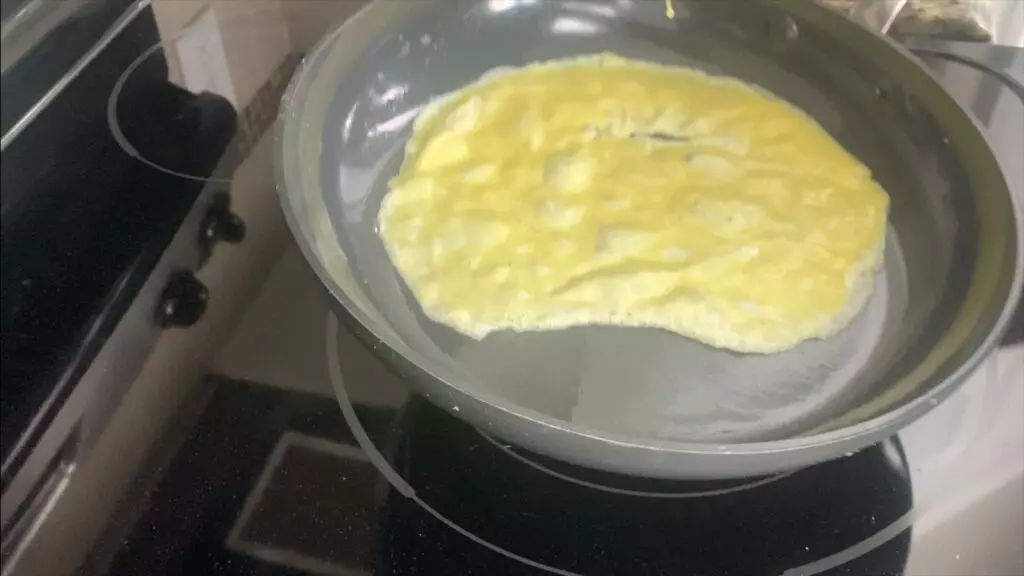
5. Cook for around 1 minute or until the egg is no longer runny. Then, using a spatula or chopsticks, carefully flip the egg and cook the other side for an additional 20 seconds. If you are getting brown spots on your egg, your pan is too hot. I would try removing from the heat and trying again. As the crepes are thin, they are somewhat finicky and require the pan to be just the right temperature.
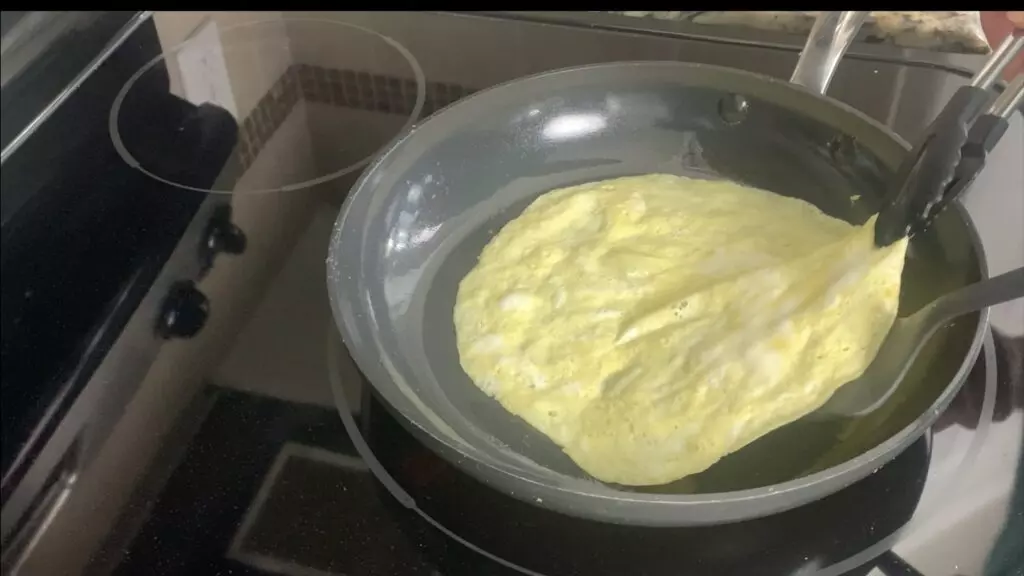
6. Remove the egg from heat and let cool on plate.
7. Once cool, roll the egg crepe and slice the roll into thin strips.
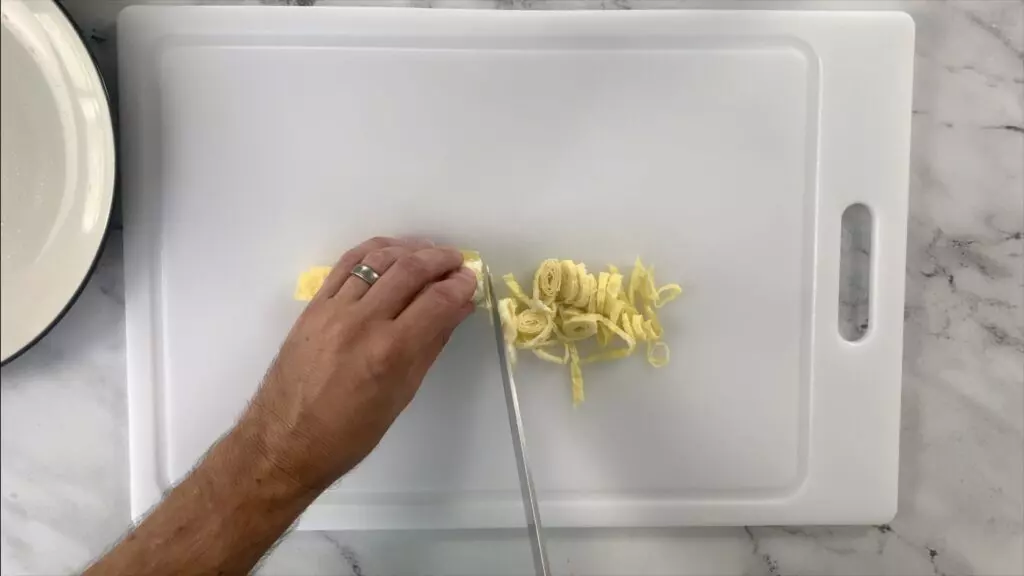
Cook the Shrimp
1. Bring a pot of water to a boil and add a dash of salt to the water.
2. Once boiling, add the shrimp and cook for around 3 minutes.
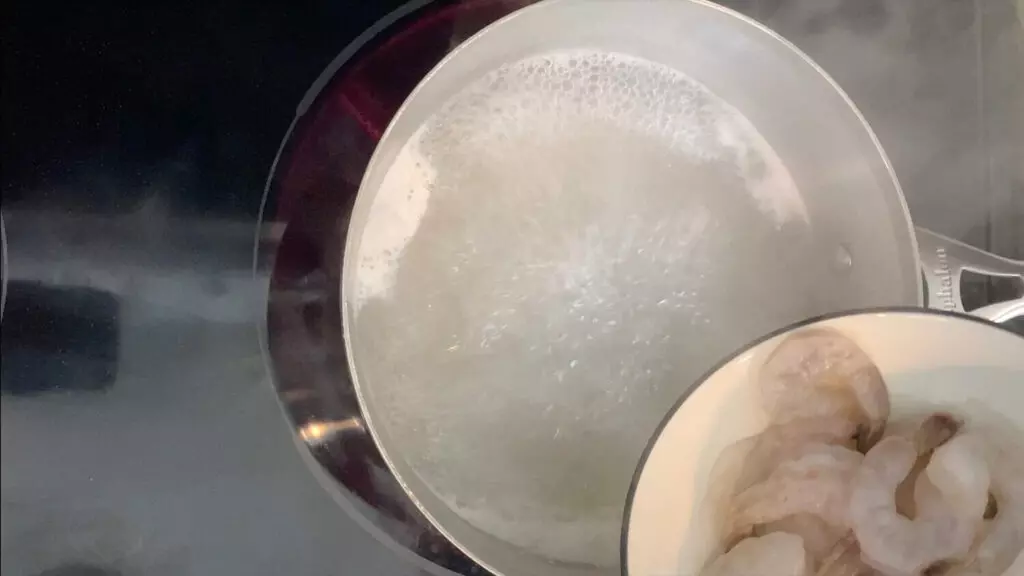
3. While the shrimp is cooking, prepare a bowl of ice water to add the shrimp to when they are done cooking.
4. Once cooked, remove from water and add the shrimp to your ice bowl. Keep in ice bowl until you are ready to add to the chirashi bowl.
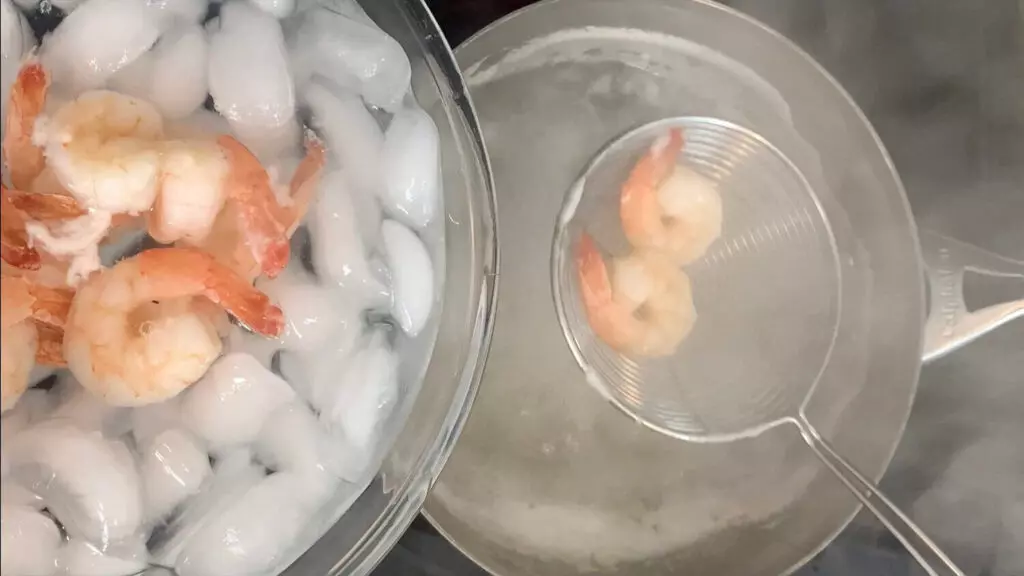
Prepare Remaining Ingredients and Assemble the Bowl
1. Slice nori sheet into strips the same size as the kinshi tamago.
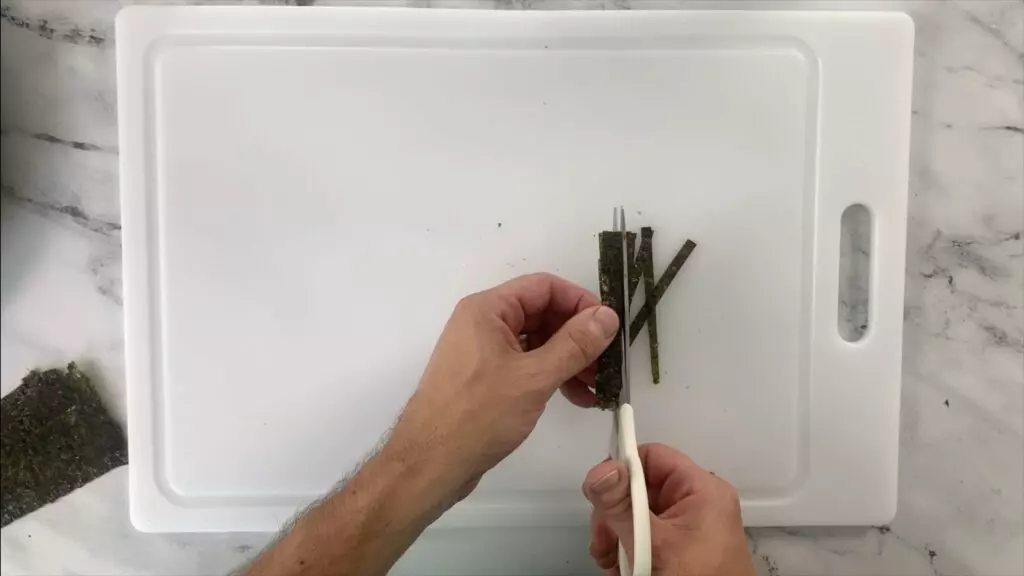
2. Cut the smoked salmon into slices.
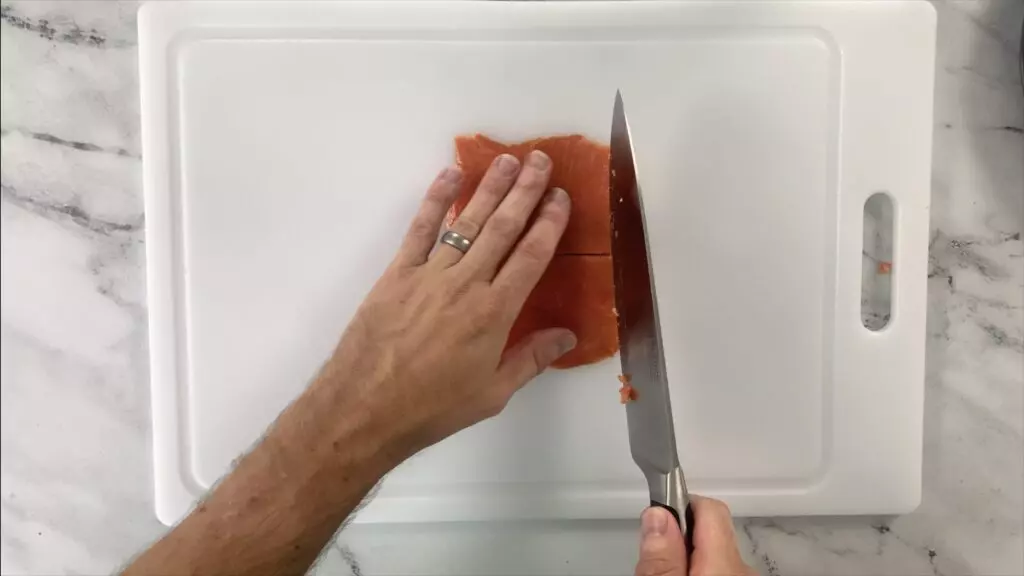
3. Cut the avocado into thin slices.
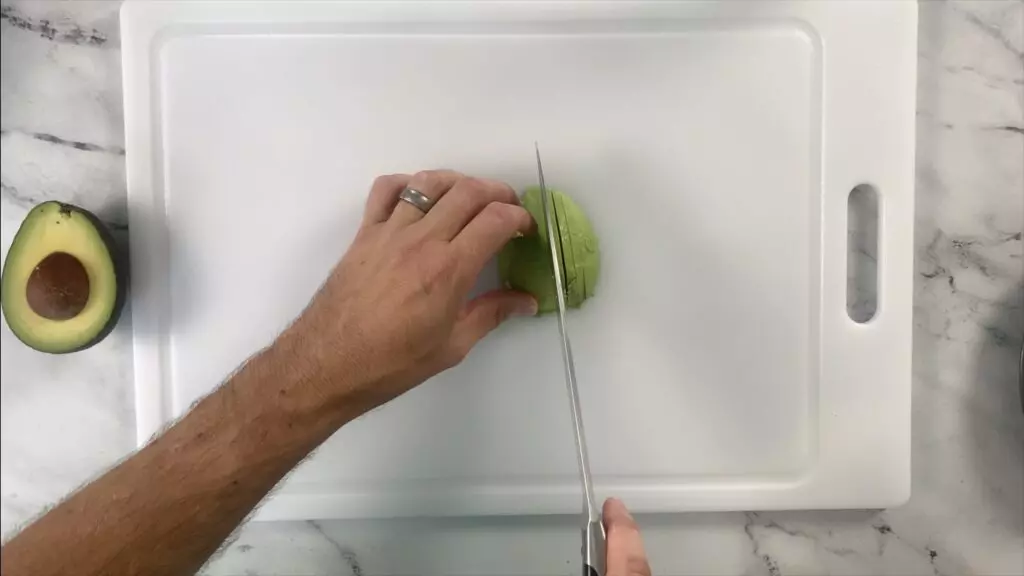
4. Divide the rice between four bowls. Arrange 1/4 of the ingredients around each bowl with a tablespoon of ikura in the middle of each bowl.
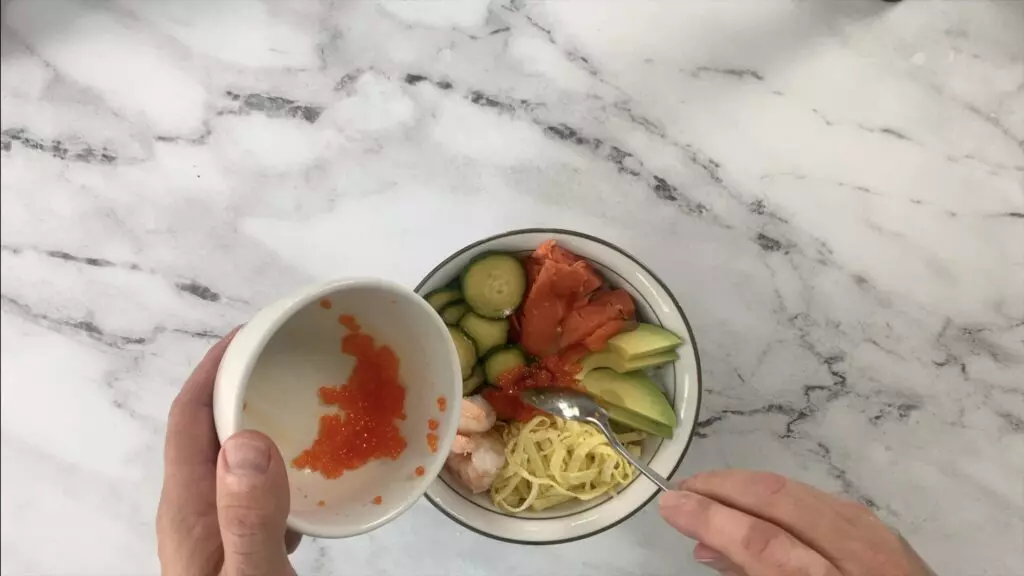
5. Sprinkle sesame seeds over the avocado slices and cucumber salad.
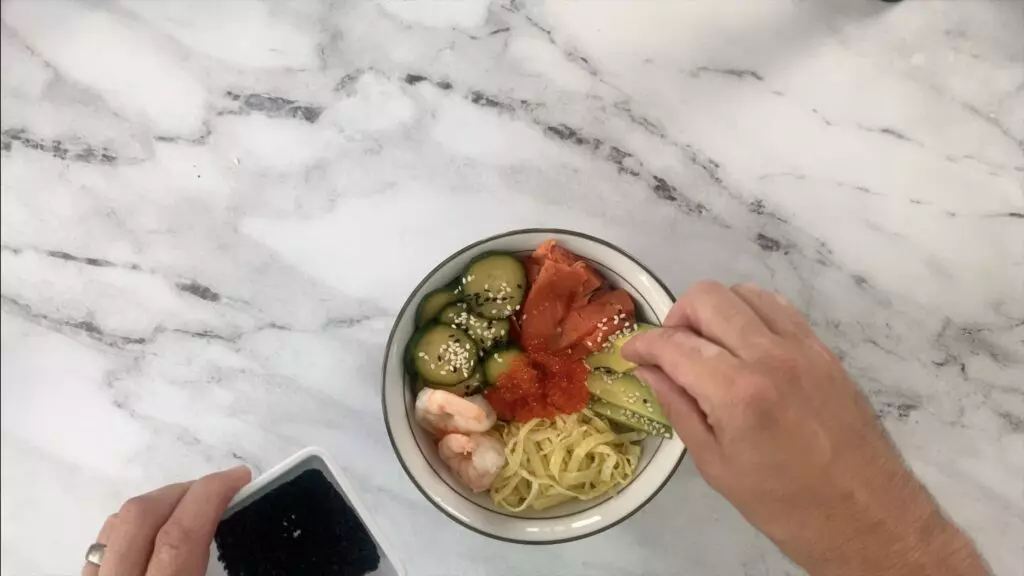
Chirashi Bowl Recipe
Chirashi Bowl (Chirashizushi) Recipe
Equipment
- 1 Pot for cooking rice
- 1 Pot for cooking shrimp
- 1 Skillet for cooking egg
- 1 Ice bowl for shrimp
Ingredients
Sushi rice
- 2 cups Sushi rice
- 1/4 cup Sushi vinegar
Kinshi tamago (shredded egg crepe)
- 1 Egg
- 1 tsp Sugar
- 1/4 tsp Salt
- 1 Tbsp Vegetable oil
Cucumber salad
- 1 cup Sliced cucumbers
- 1 tsp Sugar
- 2 Tbsp Rice vinegar
- 1 tsp Soy sauce
- 1/4 tsp Sesame oil
Toppings
- 2 oz Ikura (salmon roe)
- 1 Avocado
- 8 pieces Large shrimp
- 1/4 cup Shredded nori
- 4 oz Smoked salmon (can also use sushi grade raw salmon)
- Black and white sesame seeds
Instructions
Make Sushi Rice
- Rinse 2 cups of sushi rice by placing it in a colander and running water through it until the water is clear.
- After the rice is rinsed, add it to a sauce pan with 2 1/2 cups of water.
- Bring the water to a boil and then reduce the heat to low. Cover and let the rice simmer until the water is absorbed and the rice is soft. This usually takes 20-30 minutes.
- Remove the rice from the heat and scoop into a bowl or dish to let cool. I would line the dish with parchment paper prior to adding the rice to avoid sticking.
- Mix 1/4 cup of sushi vinegar into your rice. Stir until it has absorbed into the rice. Once cooled and fully absorbed, your rice is ready!
Make the Cucumber Salad
- In a medium bowl, mix sugar, rice vinegar, soy sauce and sesame oil until the sugar is dissolved and everything is mixed.
- Mix sliced cucumbers in the bowl making sure all cucumbers are coated.
- Cover and place in fridge until ready to use.
Prepare Kinshi Tamago (shredded egg crepe)
- Add egg to bowl and whisk until it is mixed thoroughly.
- Add sugar and salt and mix in.
- Heat a skillet on medium-low heat until pan is hot. Then brush on a thin layer of oil making sure to coat the entire bottom of the pan's surface.
- Pour egg mixture onto pan and quickly swirl across the bottom of the pan to make sure the egg is spread evenly in a thin layer.
- Cook for around 1 minute or until the egg is no longer runny. Then, using a spatula or chopsticks, carefully flip the egg and cook the other side for an additional 20 seconds. If you are getting brown spots on your egg, your pan is too hot. I would try removing from the heat and trying again. As the crepes are thin, they are somewhat finicky and require the pan to be just the right temperature.
- Remove the egg from heat and let cool on plate.
- Once cool, roll the egg crepe and slice the roll into thin strips.
Cook the Shrimp
- Bring a pot of water to a boil and add a dash of salt to the water.
- Once boiling, add the shrimp and cook for around 3 minutes.
- While the shrimp is cooking, prepare a bowl of ice water to add the shrimp to when they are done cooking.
- Once cooked, add the shrimp to your ice bowl and keep there until ready to add to the bowl.
Prepare Remaining Ingredients and Assemble the Bowl
- Slice nori sheet into strips the same size as the kinshi tamago.
- Slice the smoked salmon into slices.
- Slice avocado into thin slices.
- Divide the rice between four bowls. Arrange ingredients around the bowl with a tablespoon of ikura in the middle of the bowl.
- Sprinkle sesame seeds over the avocado slices and cucumber salad.
Video
Nutrition
Frequently Asked Questions
Are chirashi bowls healthy?
Chirashi bowls can be a very healthy meal depending on the ingredients used. You can keep a chirashi bowl healthy by using more lean proteins and vegetables and using less sushi rice.
Is a chirashi bowl gluten-free?
Whether a chirashi bowl is gluten-free depends on the ingredients used. You can keep a chirashi bowl gluten-free by avoiding soy sauce and other ingredients that contain gluten or using gluten-free alternatives to those ingredients.
Final Thoughts on Chirashi Bowl Sushi
The chirashi bowl is a complete meal, not just from a portion or nutritional standpoint, but also from flavor standpoint. The vinegar flavor of the sushi rice combined with the fish, veggies, egg, and the salty flavor of the ikura make this dish one of a kind. I hope this article motivates you to jump into creating your very own chirashi bowl. Happy cooking!
Check out below for more great articles:
Authentic Shrimp Tempura Recipe
Authentic Japanese Tempura Batter Recipe
Easy and Delicious Unagi Sauce (Eel Sauce) Recipe
Also, for more great videos subscribe to our YouTube Channel.

